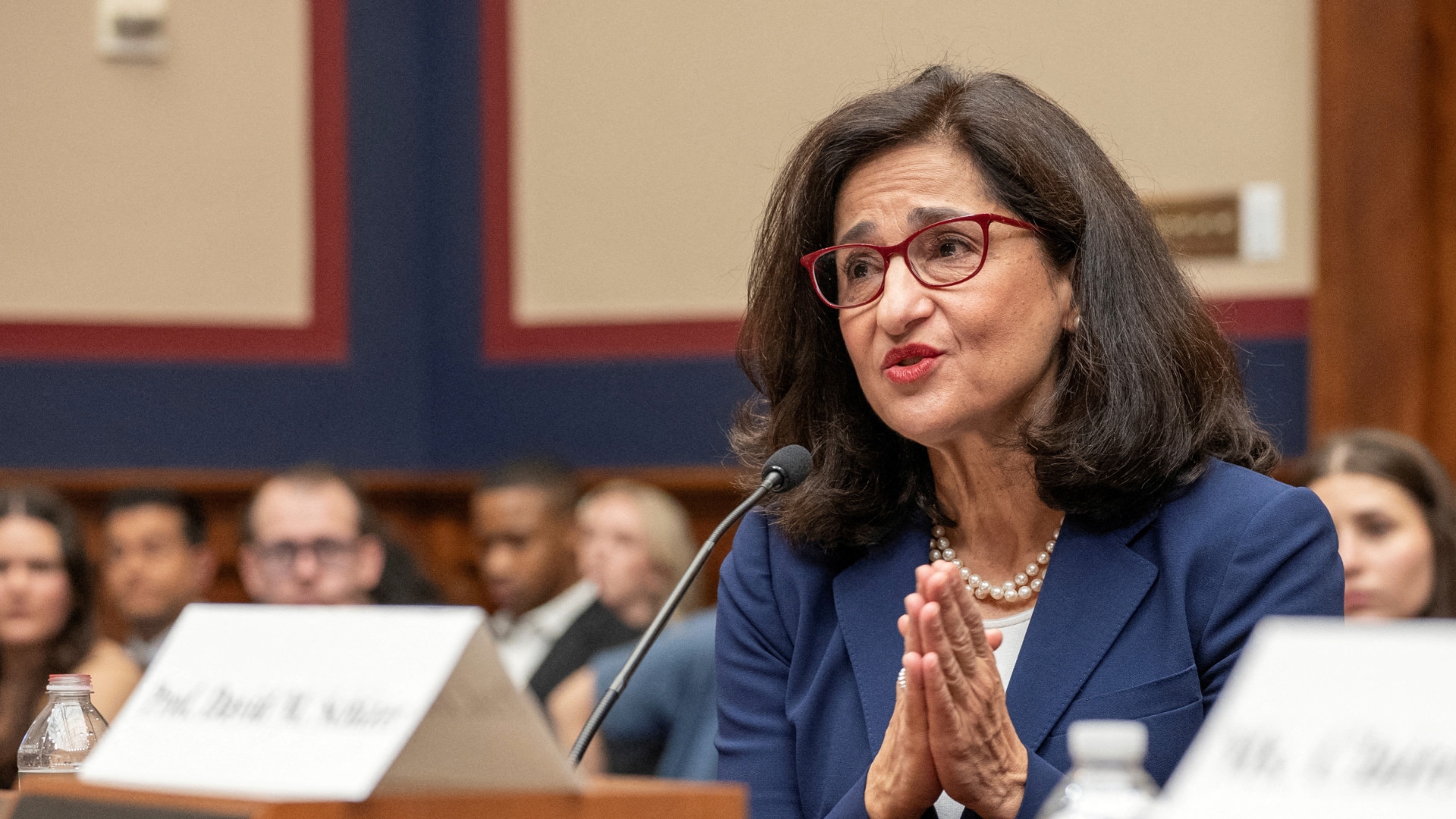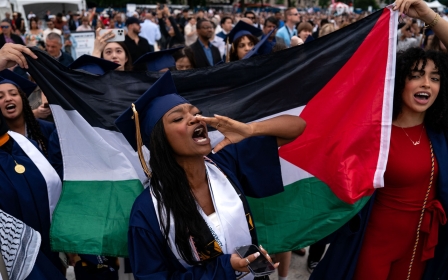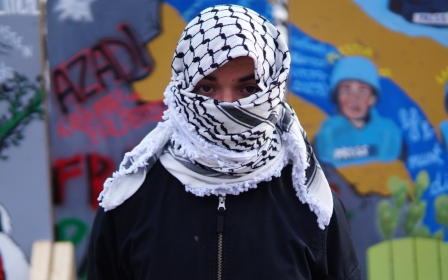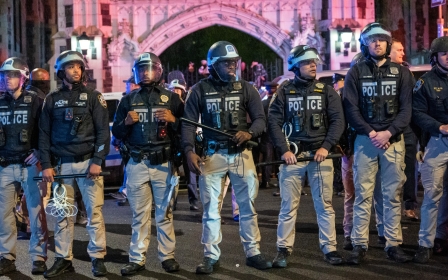Columbia University president resigns months after pro-Palestine protests

The president of Columbia University, Minouche Shafik, resigned on Wednesday, months after her handling of pro-Palestine campus protests drew widespread scrutiny and criticism.
In a letter to the Columbia community, Shafik cited the “considerable toll” her tenure had taken on her family.
She described her time as president as a “period of turmoil where it has been difficult to overcome divergent views across our community”.
“Over the summer, I have been able to reflect and have decided that moving on at this point would best enable Columbia to traverse the challenges ahead,” she added.
Shafik, an Egyptian-born British-American economist who led Columbia for just over a year, faced criticism from pro-Palestine advocates after she called in police to disperse a pro-Gaza sit-in on campus in April.
New MEE newsletter: Jerusalem Dispatch
Sign up to get the latest insights and analysis on Israel-Palestine, alongside Turkey Unpacked and other MEE newsletters
In April and May, Columbia University was rocked by student-led protests in solidarity with Gaza, calling for a ceasefire and for the university to divest from companies profiting from the war.
The student encampment sparked similar university protests across US campuses and worldwide, which were met with police crackdowns.
Shafik called in police to break up the campus encampment, citing the student takeover of Hamilton Hall, which they renamed Hind's Hall after a six-year-old Palestinian girl killed by Israeli forces in Gaza.
Dozens of students were arrested by New York police officers in riot gear after they entered Columbia University's main campus to break up the anti-war gathering.
Following her resignation, a group of pro-Palestine protesters took to the streets of New York to celebrate.
Columbia University president Minouche Shafik announced her resignation on Wednesday following months of criticism over her handling of campus protests regarding Israel’s war on Gaza. pic.twitter.com/jotlkyuurJ
— Middle East Eye (@MiddleEastEye) August 15, 2024
Students with Columbia University Apartheid Divest, one of the groups that led the campus protests, welcomed Shafik's resignation but emphasised their continued demand for the university to divest from companies that support the Israeli military.
Shafik’s handling of the campus encampment also drew criticism from pro-Israeli advocates, who argued that she failed to protect Jewish students during the protests despite many of the pro-Palestine demonstrators being Jewish.
House Speaker Mike Johnson, a critic of Shafik, welcomed Shafik's resignation.
He said that under her leadership, Columbia University became the "epicentre for virulent antisemitism" due to her "refusal to protect Jewish students and maintain order on campus".
Middle East Eye delivers independent and unrivalled coverage and analysis of the Middle East, North Africa and beyond. To learn more about republishing this content and the associated fees, please fill out this form. More about MEE can be found here.




